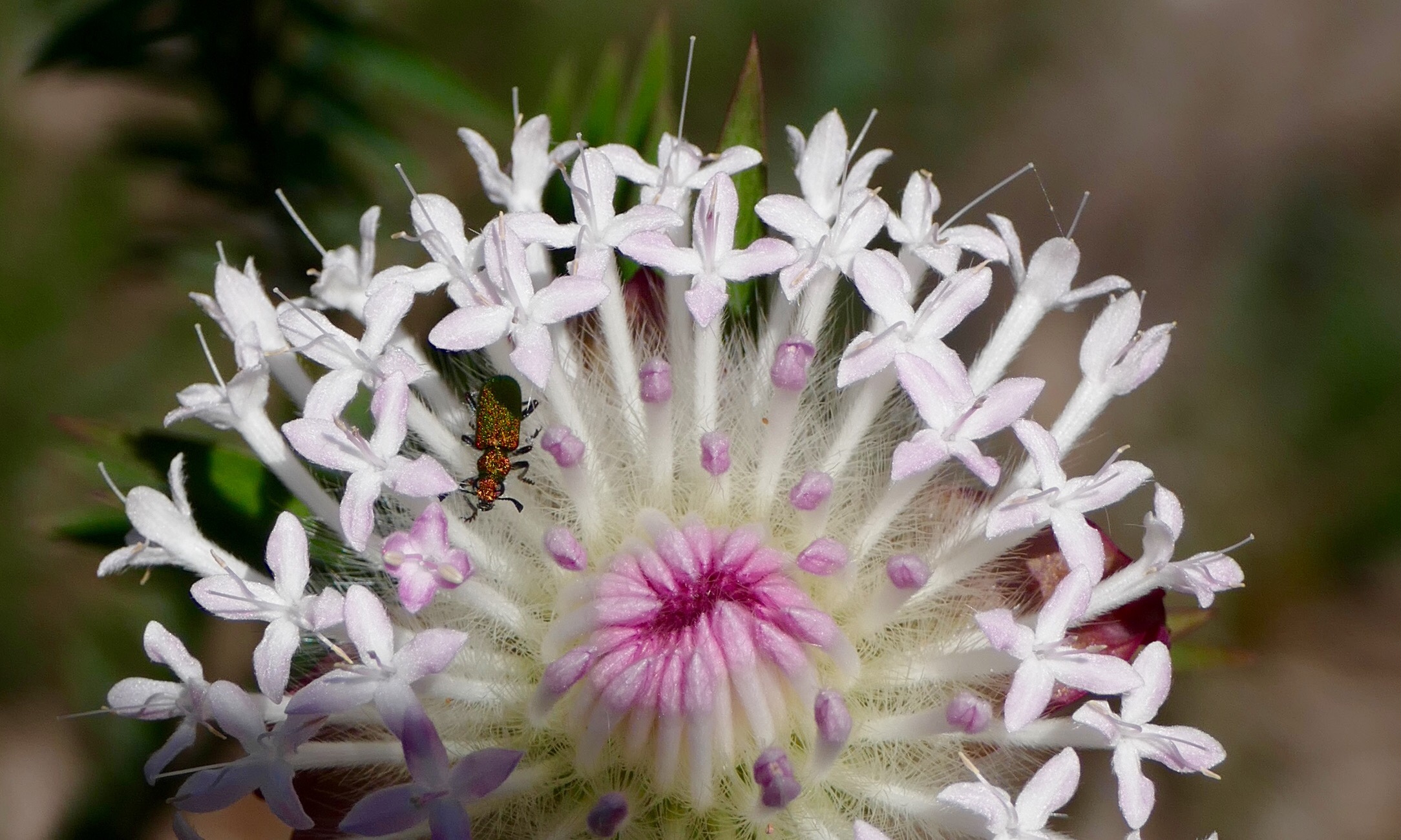For some people, being dead is only a relative condition; they wreak more than the living do. After their first rigor, they reshape themselves, taking on a flexibility in public discourse.
(This post’s natural crown – with its living “jewel” – were photographed last spring in the Black Cockatoo Reserve, Mundaring. Photo copyright Doug Spencer)
Inevitably, the imminent 20th anniversary of Princess Diana’s death is occasioning oceans of drivel.
Some of it is prurient, some sentimental, much is tawdry and/or oleaginous.
A deal of it is all the aforementioned.
However, thanks to Hilary Mantel, there is at least one excellent essay.
Two key sentences are atop this post.
Two more:
It is irrelevant to object that Diana alive bore no resemblance to Diana dead. The crowds were not deluded about what they had lost.
One paragraph:
Though she was not born royal, her ancestors were ancient power-brokers, dug more deeply into these islands than the Windsors. She arrived on the scene in an era of gross self-interest, to distract the nation from the hardness of its own character. As she correctly discerned, “The British people needed someone to give affection.” A soft-eyed, fertile blond, she represented conjugal and maternal love, and what other source did we have? Until Tony Blair took office as a fresh-faced Prince Charming we had female leaders, but they were old and their cupboards were bare of food and love: a queen who, even at Diana’s death, was reluctant to descend from the cold north, and a prime minister formerly known as Maggie Thatcher, Milk Snatcher.
The Guardian published Hilary Mantel’s essay on August 26.
You can read all of it, here.
Afterwards, you may like to listen to a pertinent song.
Infinitely superior to Candle in the Wind, Eliza Carthy’s Fallen Leaves is much sharper, but more intimate, truly poignant, not schlock.
The song was sparked by a conversation between Eliza and her mother, shortly after Princess Diana’s death.
Eliza’s mother is Norma Waterson; the song’s debut/definitive recording is on Norma’s 1999 album The Very Thought of You.

Thanks for the link to Hilary Mantel’s Guardian article, written with all the authority and clarity of someone throughly acquainted with the doings of royalty and the fate of royal brides.
It is also worth listening to Mantel’s 2017 Reith lectures on the BBC in June (www.bbc.co.uk/programmes/p04rkn39)